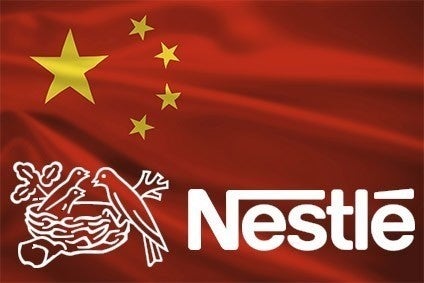
Nestle said today (13 August) it is starting to see a recovery in the performance of its business in China but remained cautious on the macroeconomic outlook for the market.
Speaking today (13 August) after Nestle released its first-half results, CFO François-Xavier Roger said the company's effort to adapt to rapidly-evolving consumer preferences in the market was starting to pay off. "We continue our effort to adapt our portfolio in line with fast changing consumer expectations… the recovery will be a continual process through 2015," he said during a conference call.

Discover B2B Marketing That Performs
Combine business intelligence and editorial excellence to reach engaged professionals across 36 leading media platforms.
Nestle has seen issues in China weigh down the performance of its combined Asia, Oceania and Africa division in recent quarters. The Kit Kat maker reported sales from the unit inched up 0.8% on an organic basis in the first half of 2015.
Roger said the result was "soft" but insisted trends in the division were "gradually improving".
In China, Nestle said an improvement could be seen "across the categories" with ambient dairy, confectionery and soluble coffee all contributing. Roger said Nestle had seen "mid-single digit" growth in the market.
He continued: "We see an improvement, which we are very pleased with… I want to be careful. There is a lot of volatility in China. We are satisfied with the turnaround in China. That being said we are cautious about the outlook given the volatility."

US Tariffs are shifting - will you react or anticipate?
Don’t let policy changes catch you off guard. Stay proactive with real-time data and expert analysis.
By GlobalDataConcern over China's macroeconomic outlook has risen this week after Beijing took the surprise step of devaluing the yuan. This could put pressure on consumer sending, particularly of imported products which look set to appreciate in price.
According to Cowen analyst Oliver Chen, the currency fluctuation is most likely to hit the luxury goods sector. "We view a devalued yuan as a negative for global luxury players, given products may be more expensive and difficult to sell to Chinese consumers," he noted.





